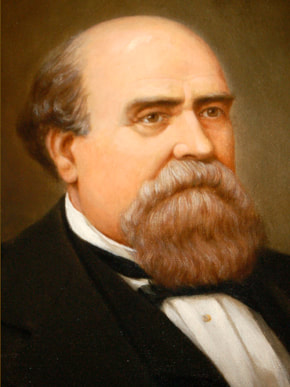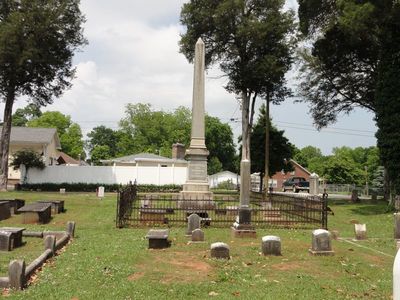About Governor Houston

George S. Houston was born on January 17, 1811, near the town of Franklin, Tennessee. When Houston was sixteen years old, the family moved to Lauderdale County, Alabama. Houston worked on the family farm and attended school at a local academy. Early on, he developed a fondness for books, and he eventually completed his studies in a private law school at Harrodsburg, Kentucky.
In 1834, Houston moved to Limestone County and opened a law office in the county seat of Athens. He became a prominent local attorney as well as a member of Congress and a two term Governor of the State of Alabama. Governor Houston spent a total of 36 years in public service. He was a state legislator, circuit solicitor, and served nine terms in Congress. Perhaps no member was ever more complimented with committee appointments than he. He was placed on the most important committees and served as Chairman of Ways and Means, Military Affairs, and the Judiciary--an honor rarely, if ever accorded to any other member. Due to his conservative fiscal policies while in Congress, he was known as “The Watchdog of the Treasury”. Some historical accounts report that Houston was particularly influential with Presidents Pierce and Polk.
Houston, a Unionist, was consistently opposed to secession and vowed that secession was unconstitutional. Ironically, Houston was drafted to write and deliver the speech of secession which declared the resignation of the Alabama Congressmen from the House. Although Houston did not fight in the Confederate Army because of bad health, he cast his lot and loyalty to his home state.

In 1874, Houston was elected the 24th governor of the State of Alabama. As Alabama’s governor, he reorganized the public school system and established the first department of public health in the South. Houston’s term restored Democratic control of state government and ended Radical Reconstruction in the state. He restored the budget to a reasonable amount and cut expenses and dead wood from state government. Houston was elected for a second term as governor in 1876. At the end of his second term, he was sent to the United States Senate. He served in the extra session of 1879 but did not return to Washington on account of his poor health. On December 31, 1879, he died at his home in Athens. Upon his death, it was ordered that the public offices be closed on the day of his burial and that the capital be draped in mourning for thirty days. He is buried in the Houston family plot in Athens City Cemetery.